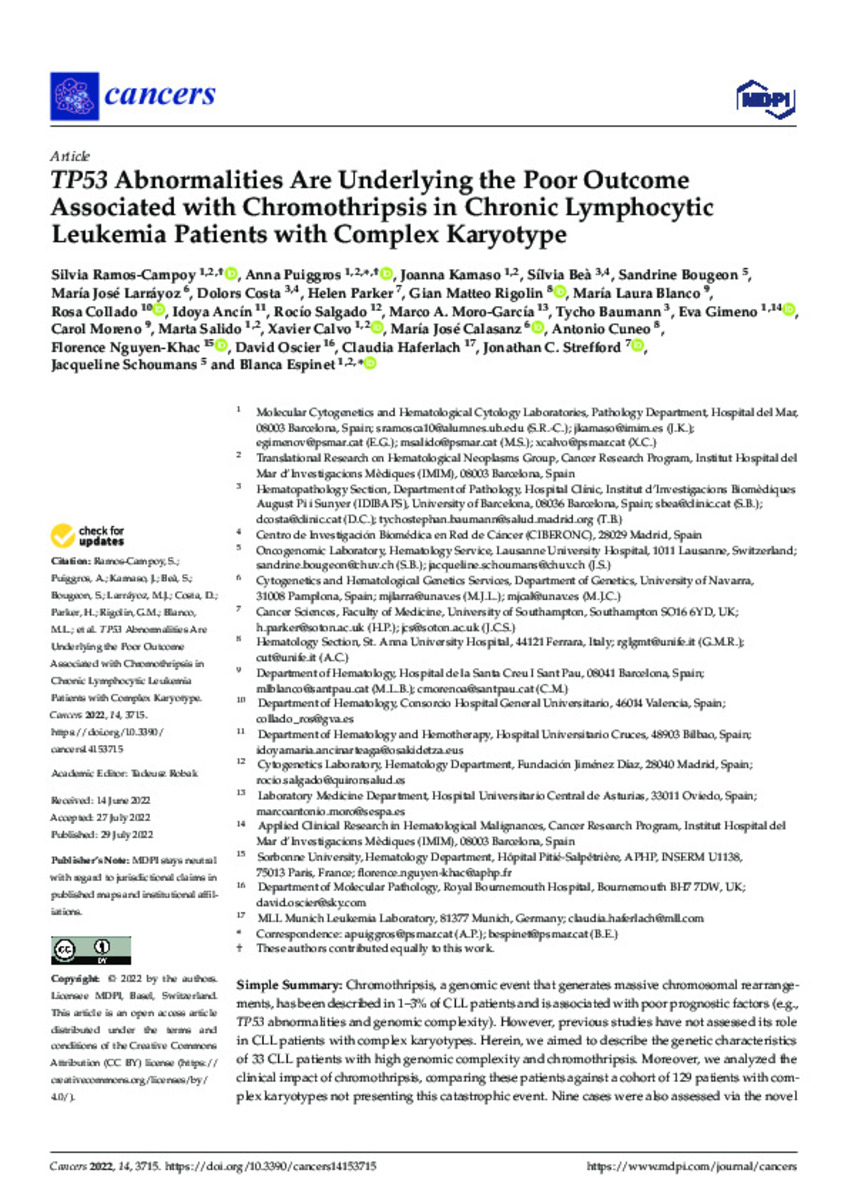TP53 abnormalities are underlying the poor outcome associated with chromothripsis in chronic lymphocytic leukemia patients with complex karyotype
Keywords:
Chronic lymphocytic leukemia
Genomic complexity
Chromothripsis
TP53
Genomic microarrays
Optical genome mapping
Note:
This article is an open access article
distributed under the terms and
conditions of the Creative Commons
Attribution (CC BY) licens
Citation:
Ramos-Campoy, S.; Puiggros, A.; Kamaso, J.; et al. "TP53 abnormalities are underlying the poor outcome associated with chromothripsis in chronic lymphocytic leukemia patients with complex karyotype". Cancers. 14 (15), 2022, 3715
Statistics and impact
0 citas en

0 citas en

Items in Dadun are protected by copyright, with all rights reserved, unless otherwise indicated.









